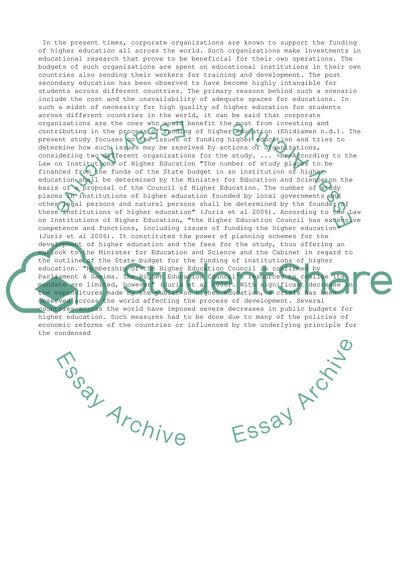Cite this document
(“Funding Higher Education Essay Example | Topics and Well Written Essays - 3000 words”, n.d.)
Retrieved from https://studentshare.org/business/1474816-funding-higher-education
Retrieved from https://studentshare.org/business/1474816-funding-higher-education
(Funding Higher Education Essay Example | Topics and Well Written Essays - 3000 Words)
https://studentshare.org/business/1474816-funding-higher-education.
https://studentshare.org/business/1474816-funding-higher-education.
“Funding Higher Education Essay Example | Topics and Well Written Essays - 3000 Words”, n.d. https://studentshare.org/business/1474816-funding-higher-education.


